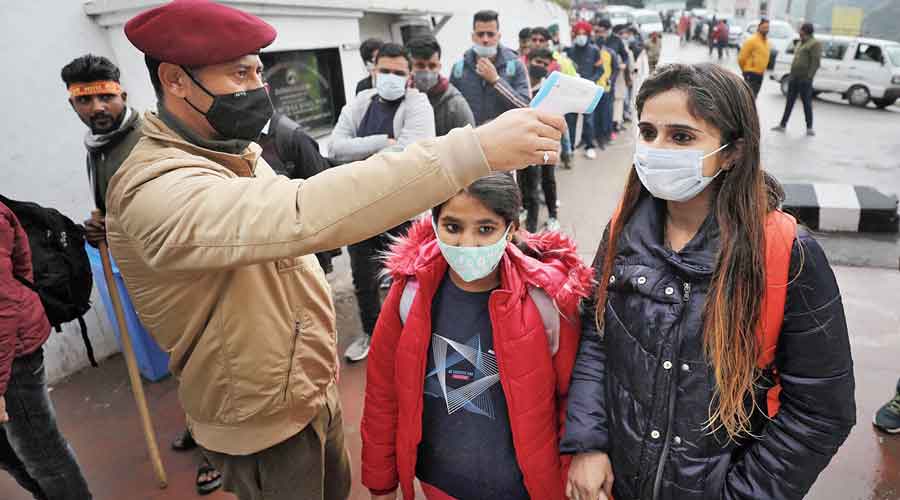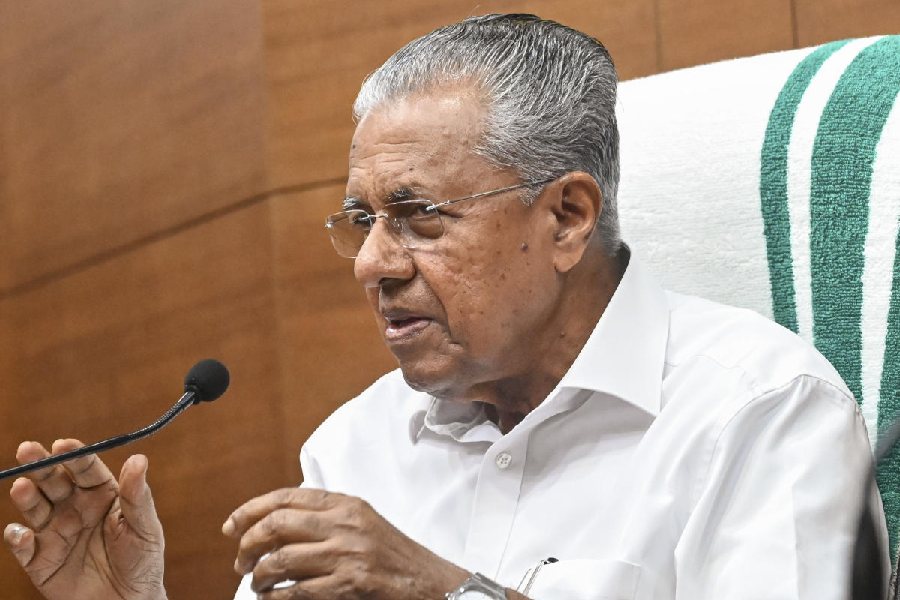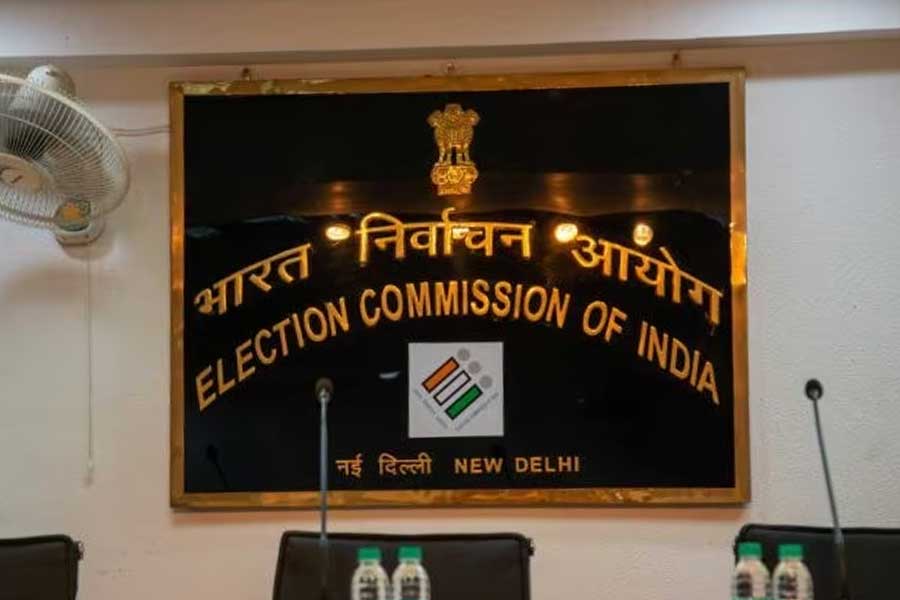Multiple lines of evidence suggest omicron will fuel fresh Covid-19 surges in India but health researchers are waiting for critical data to say whether and where the variant might impact demand for hospital resources.
Researchers said it was also too early to predict if an omicron-driven third Covid-19 wave was imminent because that would depend on whether district and state authorities are able to contain local outbreaks and prevent simultaneous surges in many states.
The evidence from South Africa and Europe for omicron’s capacity to spread fast and cause infections in prior Covid-19 patients and fully vaccinated people indicates that, given the chance, omicron will likely cause clusters and surges in India too.
While early observations from South Africa, including real-world data that emerged on Tuesday, have hinted that omicron infections are milder, conflicting reports from Denmark and an omicron death in the UK underline challenges in trying to forecast impacts.
The new data from Discovery Health, South Africa’s largest health insurer, on Tuesday has documented 38 admissions per 1,000 omicron infections compared with 101 admissions per 1,000 infections from the delta variant that had fuelled India’s second Covid-19 wave, while spreading worldwide.
Delta had driven South Africa’s third wave earlier this year.
“This is early data but information about severity of disease will be crucial to understanding omicron’s potential impact,” said Gautam Menon, professor of physics and biology at Ashoka University who is among researchers trying to make projections about the epidemic.
Menon said some data trickling in suggest that omicron, while evading immune responses quite effectively, might lead to symptoms milder than caused by delta and fewer proportions of omicron-infected patients require critical care than delta-infected patients.
Menon said: “Infection counts become largely irrelevant if people don’t need hospital admissions. But the data are very preliminary and we would ideally need severity rates across different age groups to make credible projections.”
The Discovery Health analysis also noted anecdotal accounts of less respiratory distress and lower proportions of hospitalised patients who require critical care support curing the current omicron wave compared with South Africa’s earlier waves.
In Denmark, however, the hospitalisation rate is 0.8 per cent for omicron and 0.7 per cent for delta, based on data from November 22 to December 12 analysed by Peter Reinhard Hansen, a researcher at the University of North Carolina in the US and the Copenhagen Business School.
Epidemiologists caution that even small fractions of patients developing severe disease and requiring critical care could overwhelm hospital and healthcare resources if the absolute numbers are large and beyond available local capacities.
“The exponential growth we see elsewhere suggest that surges will likely occur across India too — the earliest spikes are likely to emerge in areas with low levels of vaccinated populations,” said Tarun Bhatnagar, a senior researcher at the National Institute of Epidemiology, Chennai.
But Bhatnagar and other health experts say localised surges will translate into a nationwide third wave if they start to occur in multiple states at the same time as had happened between February and March this year marking the rise of the second wave.
“That’s what makes early detection of surges and local containment actions critical,” said Bhatnagar.
The Union health ministry had last week asked states to look out for clusters or signs of surges and impose lockdown-like restrictions wherever critical care bed occupancy rates exceed 60 per cent.
The stronger and earlier the actions that curb the spread of the virus, the slower the rise in daily new infection counts. On the other hand, outbreaks allowed to degrade into large surges will strain oxygen and critical care resources.
Health authorities in India have detected over 40 cases of omicron in several states but the country’s daily new infection counts have remained below 10,000 over the past three weeks. On Tuesday, the health ministry reported 5,784 new cases, the lowest in 19 months.
“If there is a third wave, we would expect it to be less severe than the second wave,” Bhatnagar said.
While lab studies have shown vaccine effectiveness is reduced against omicron compared with earlier variants, researchers expect that vaccine-triggered immune responses will continue to provide some protection from severe disease.












